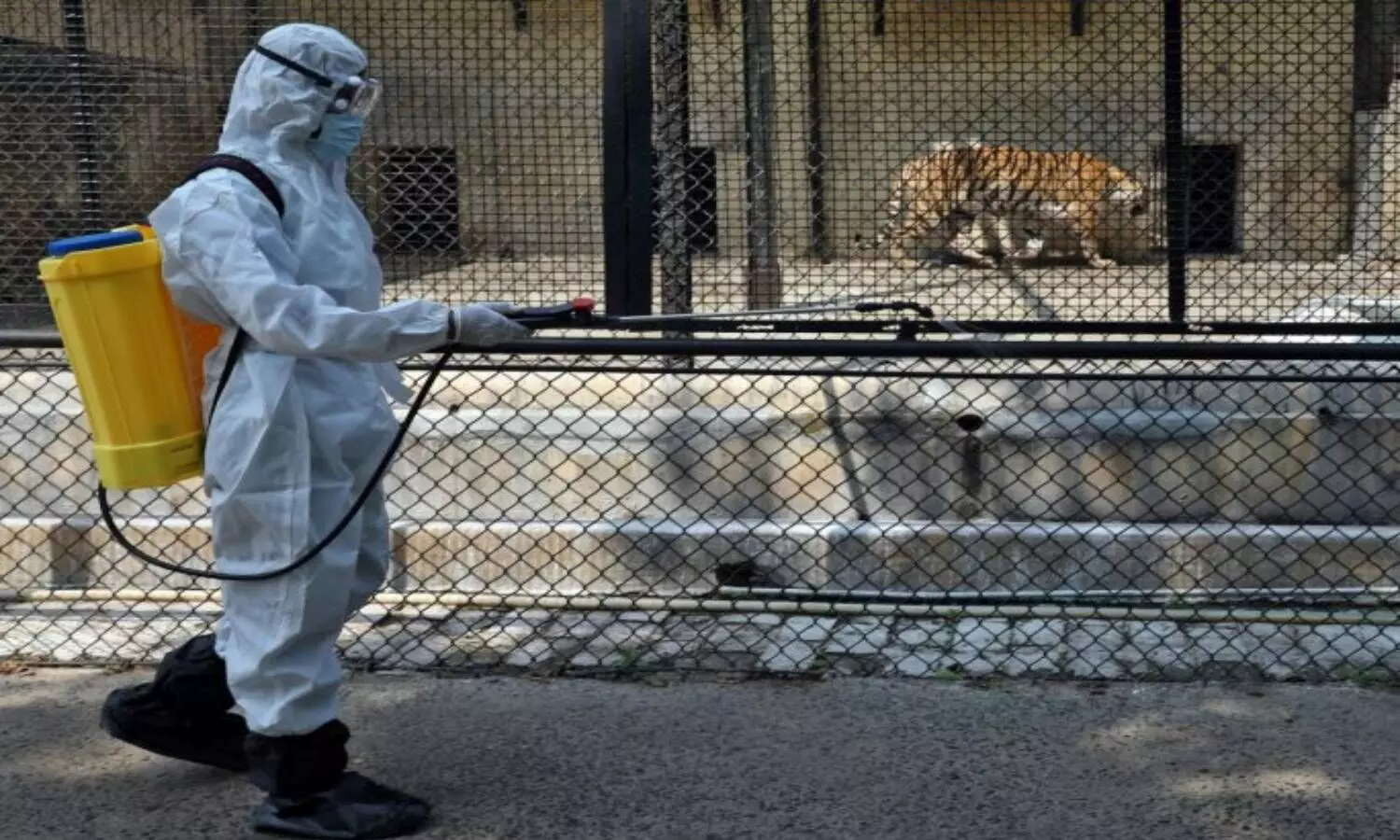Anorexia to wheezing: Hyderabad's LaCONES ask zookeepers to segregate animals with COVID symptoms
LaCONES is one of the four designated centers for testing animal samples for possible COVID infection.
By Newsmeter Network
Hyderabad: CSIR- Centre for Cellular and Molecular Biology (CCMB)'s Laboratory for the Conservation of Endangered Species (LaCONES) has released guidelines for the frontline zoo personnel in managing captive animals suspected of being infected with COVID 19.
LaCONES is one of the four designated centers for testing animal samples for possible COVID infection.
It may be recalled that eight out of the 12 Asiatic lions at Hyderabad's Nehru Zoological Park has tested positive for the coronavirus in April, while a nine-year-old lioness is suspected to have died from COVID-19 on June 3 at Arignar Anna Zoological Park (Vandalur Zoo) in the outskirts of Chennai.
LaCONES started testing animal samples for possible SARSCoV2 infection in August last year and scientists found the first positive samples from Asiatic lions in the Nehru Zoological Park in April this year.
LaCONES has called on veterinary staff, and animal keepers to be on the alert for Covid-19 symptoms in zoo animals, and immediately segregate them if they were found showing signs of having the disease. It also asked the zoo staff to take proper Covid-19 safety precautions.
LaCONES team has tried testing for coronavirus using different kinds of nasal, oropharyngeal, rectal, and fecal samples from the animals. COVID symptoms in animals may include a lack of appetite, anorexia, coughing, sneezing, wheezing, nasal discharge, fever, and respiratory distress.
As part of developing a protocol for collecting samples from animals showing Covid-19 symptoms, the lab tested different kinds of nasal, oropharyngeal, rectal, and fecal samples from the animals.
"We hope that our recommendations will help zoo staff in collecting and packing the samples appropriately before they are sent for testing. Given how difficult it is to get samples from animals, it is all the more important that we make most of the samples we get," said Dr. Karthikeyan Vasudevan, scientist-incharge, LaCONES.
"The guidelines provide detailed protocols that include pictorials and frequently asked questions for an easier understanding of those collecting samples for Covid testing in wildlife", said Dr. Vinay K. Nandicoori, Director, CSIR-CCMB
The guidelines prepared in collaboration with the Central Zoo Authority and the Ministry of Environment, Forestry and Climate Change details what to look out for among animals having the virus, their treatment, diet, collection of samples, postmortems, disinfection process, transportation of samples, etc.